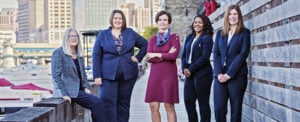As Coronavirus cases are becoming more prevalent in the broader community with no predictable timeline for vaccine availability, many families are considering moving their frail elder and disabled loved ones out of long- term care facilities. Their reasoning for a move is highly justified.
Frail elders and the individuals with disabilities who have been isolated from family and other visitors suffer from increased and marked feelings of isolation, sadness and depression. Those few lucky individuals who have been allowed access to elder parents or spouses through window openings or on outside patios will be denied access again once the cold winter weather looms.
Family members also fear that the quality of care to their loved ones will be jeopardized if they cannot serve as “watch dogs.” This is especially true for the elderly and disabled who have limited ability to convey their own needs and wants due to physical or cognitive impairments. In addition, there is the concern of increased susceptibility to the virus in large congregate living settings. By virtue of need, caregivers must be in close physical proximity to residents to assist them with routine activities of daily living. Because many individuals infected with the virus can present as asymptomatic, facilities cannot completely protect residents from possible exposure to the virus.
While the move of a frail elder or an individual with a disability from a facility to a private residence may be warranted, care must be taken to lay out a thoughtful transition plan. An abrupt move home or to another private setting may prove disastrous or even fatal to the person that family members are trying to protect.
Family members who have not acted as a primary caregiver for their loved one may not fully comprehend the extent and nature of their loved one’s impairments. Most families will be ill-equipped or unable to meet all their loved one’s care requirements. Questions may come up about family member compensation, rental arrangements and family visitation/conflict. Families must balance other life commitments such as employment, home schooling of children and the physical and mental challenges that come with being a primary caregiver. Nationally, there is a shortage of home health care workers making the ability to get outside help more difficult.
Then, there is access to medical and healthcare professionals. Facilities provide doctors and pharmacy services onsite to residents. There often needs to be coordination and consultation with new medical providers and with a pharmacy for prescription drug needs. The safety and accessibility of the home or new private living arrangement must be investigated as well and necessary modifications made.
Finally, there are the financial ramifications of the move. In some instances, home-based or private care can exceed the costs of institutional care. For those individuals receiving public benefits, such as Medicaid, to fund their care, options for caregiving and support may be further limited and/or inadequate. Paying family members may require professional consult as to service contracts, income tax withholding and workmen’s compensation issues.
If there is an interest in moving a frail elder or an individual with disability home, the family should consult with their loved one’s medical providers, arrange for a meeting with a social worker at the facility or seek assistance from the county’s aging and disability resource center. For those families with resources, it is often helpful to seek the advice of an elder law attorney and professional care management



